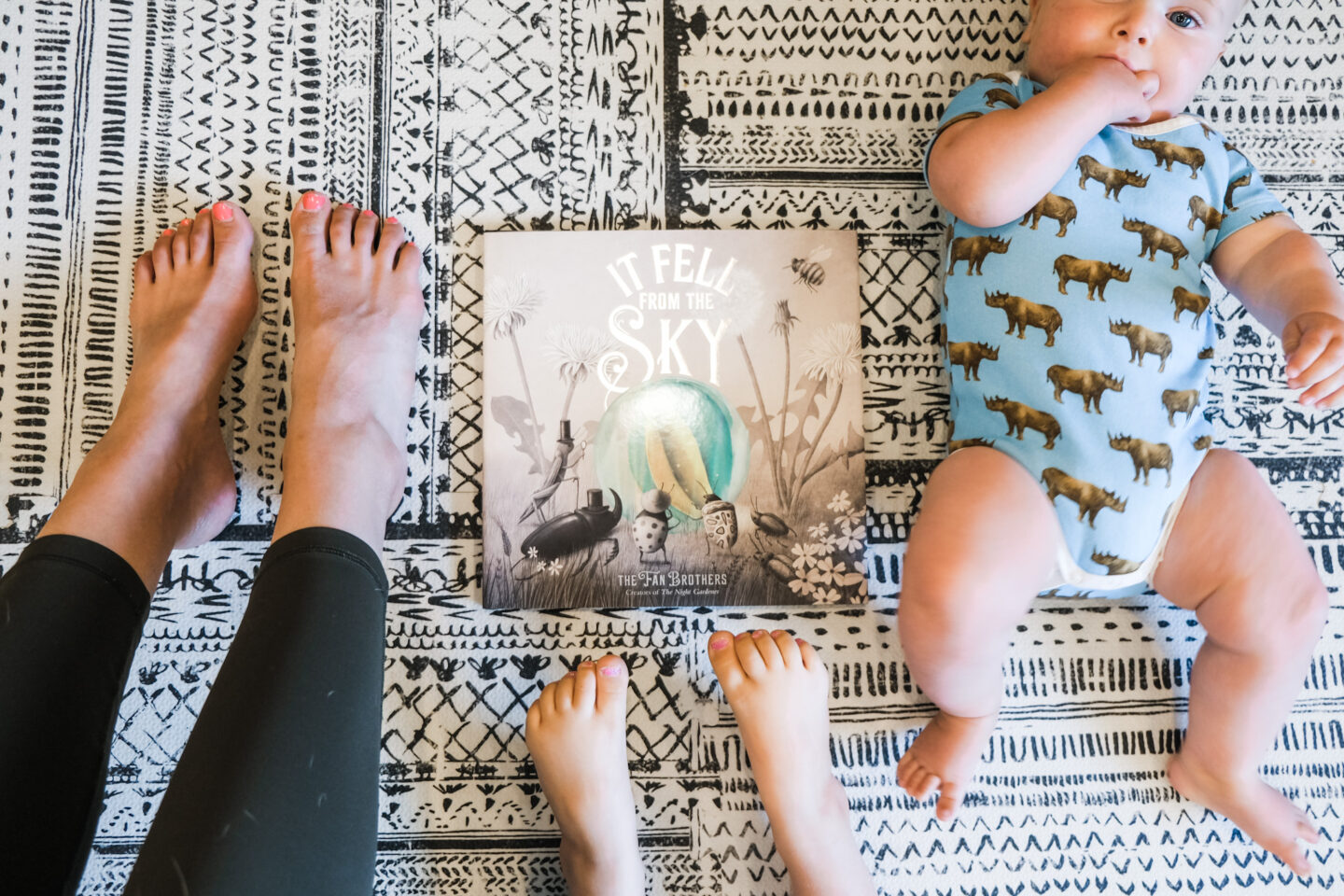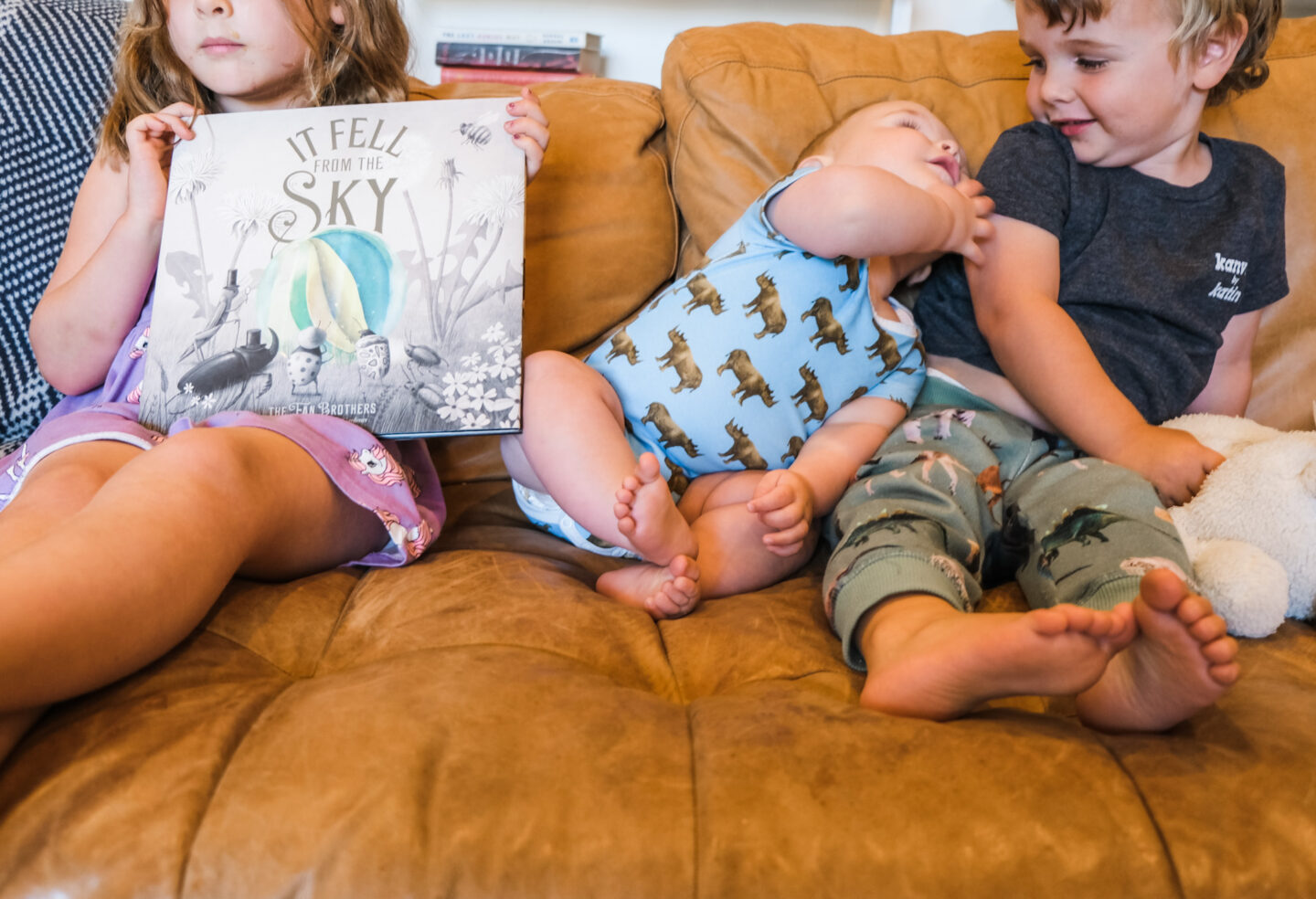I recently read a really lovely picture book entitled It Fell From The Sky. It’s about a group of bugs who encounter a beautiful marble that has, apparently, fallen from the heavens and intruded–in the most delightful kind of way–on their familiar patch of grass.

Yet while most of the bugs marvel at the marble, question its origins, and imagine the power it holds, the spider alone decides he needs to make it his own. So, he traps the marble in a carnival of sorts, charges the other bugs admission, and, through attempting to control it, ends up squandering the potential the marble once had to bring joy, and wonder, into the lives of everyone else.
Having a child is not exactly like having a marble fall from the sky. On the contrary, most of us go through months of physical discomfort and intense mental preparation before we’re rolled out of labor and delivery with a baby in our arms.
But nevertheless, as soon as we enter the world together, as mother and child, people start referring to the baby as “ours.”
And, at that stage of life, at least, they are ours. In fact, my own newborns were all so dependent on me those first few months that I almost considered them extra appendages. My current baby–my third–still spends most of the day either attached to my boobs, or strapped to my body in a baby carrier. He is mine because he can do literally nothing for himself. (Including sleep, which is a story for another day).
But my oldest, is four, and she’s a different beast entirely. She’s emotional, and opinionated, and adores singing and ballet. She’s attached at the hip to her closest sibling, and seems to “enjoy” the baby only when other adults are around. She can be funny and charismatic, but she can also be shy and reserved, and despite the fact that all of these qualities and characteristics are uniquely her own, people still refer to her as “mine.”
How is “your daughter?” “Your daughter” looks so much like you! Does “your daughter” like to read as much as you do?
And while such verbiage is necessary in polite society–when we don’t just want to point at kids and refer to them as “that one”–it’s also pretty emotionally loaded for the parents.
Because when someone says, “my son isn’t sleeping,” a lot of us are quick to wonder whether the parent is perhaps doing (or not doing) something to unintentionally sabotage the routine. Or when someone expresses a concern like, “my daughter is struggling in school,” we wonder whether the parents adequately prepared said child, to both behave, and perform, in a classroom setting.

While my four-year-old is still very much “my child,” in that she is four and still dependent on me for most things, she is also very much her own self, in a way that has nothing at all to do with me.
As my daughter’s parent, there is a lot about her life that I can control. I can control what I feed her, and the clothes I buy her, and how often I turn the T.V. on. I can control where she goes to school, and whether I pay for ballet lessons, and what kind of bed she sleeps in. But there are even more things I can’t control, like how much she eats, or what she chooses to wear, or how she reacts when I turn the T.V. off. Or whether she likes school, or chooses to participate at ballet, or decides to sleep in her bed at night.
And while it is certainly my job to set my kids up for success in the wider world, and to tune-in to any red-flag behaviors that might serve to remind me that something is lacking in my approach, at the end of the day, if I am able to take my ego out of the equation, and frame my kid’s successes, as well as their failures, as a reflection of their choices, instead of solely my influence, one day, they’ll be able to see themselves as the drivers of their own lives, and their own destinies, instead of a personified magic marble, trapped in mom’s metaphorical fun-house of wonders.
I also like to think of how surprised I’ll be by the things they do, and the people they become, and the ideas they inspire, and how wonderfully different those journeys will be than anything I could have planned for them myself.
And, let’s be honest, this child-as-appendage thing is hard. I’d like to send the marbles back out into the world one day, so this ringleader can have a bit of a break.
The Book

I relate to this a lot. My daughter is 3 and has always very much been her own person. Sometimes I felt like a failure as a mom but only because I was trying to make her bend to my own needs. She’s always known what she wants and I don’t think any amount of parenting will change that! I can also relate to your relationship with your youngest. I’m in the throes of it at the moment too. It’s so hard when they’re so little but I’m excited for the independence that I know is imminent.